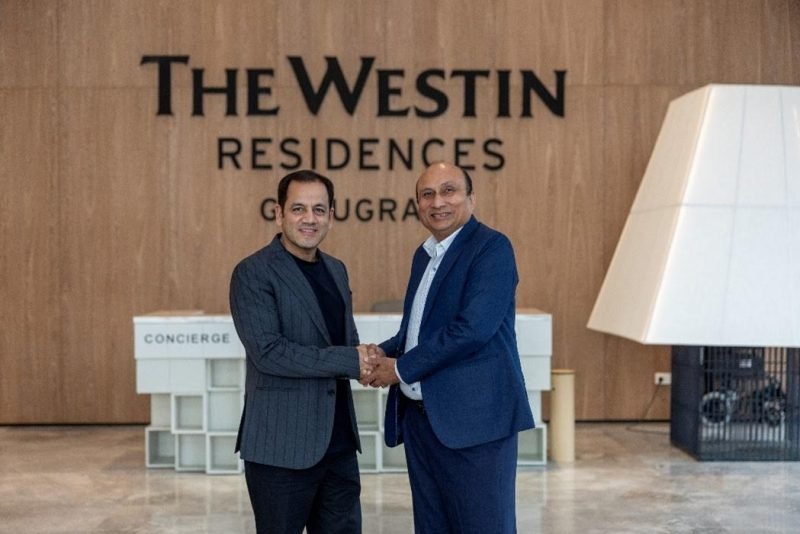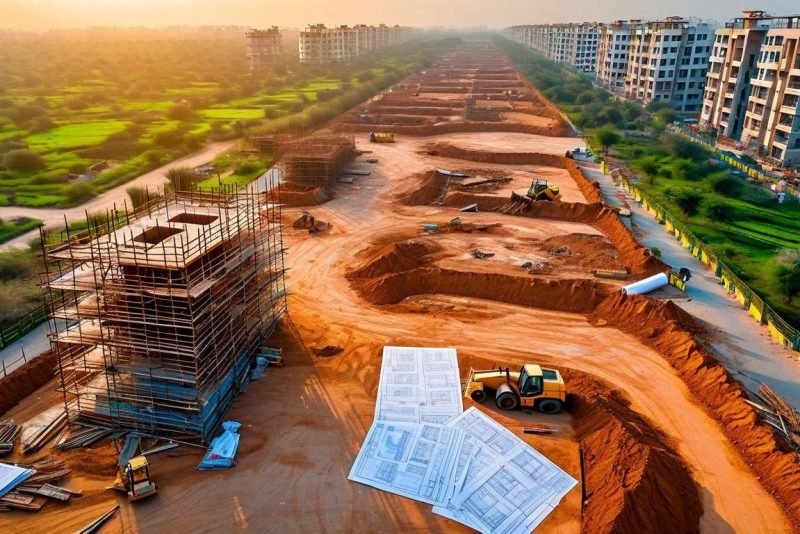Haryana government approved a Rs 750-crore elevated corridor from Vatika Chowk to CPR cloverleaf to connect Dwarka Expressway with Delhi-Mumbai Expressway within two years. GMDA board, chaired by CM Nayab Singh Saini, plans six-lane roads, 3m-wide
Haryana govt on Wednesday approved a 5.5km signal-free elevated corridor from Vatika Chowk to the CPR cloverleaf that will connect Dwarka Expressway with Delhi-Mumbai Expressway at Sohna. The decision was taken at the GMDA board meeting in Chandigarh chaired by chief minister Nayab Singh Saini. The Rs 750-crore project, which factors in Rs 130 crore for land acquisition at Vatika Chowk, will take two years to complete after the work is allotted.
Under the plan, both the main carriageway and service roads of the elevated corridor will have six lanes – three on each side.
GMDA officials said the existing SPR stretch will be developed into the service lanes, which will have entry and exit points to the elevated section. Additionally, 3m-wide footpaths and 2.5m-wide cycle tracks and green belts will be developed on each side.
The stretch from the CPR cloverleaf to Vatika Chowk currently has traffic signals at three intersections, which will be removed. “We have received administrative approval for the upgrade of SPR from Vatika Chowk to the CPR cloverleaf on NH-8 for a signal-free elevated corridor. We will soon engage a consultant to prepare the detailed project report, along with design and technical specifications,” a senior GMDA official said.
The elevated section, once constructed, will help in decongesting major arterial roads like Golf Course Road and Sohna Road by providing an alternate route for commuters, reducing bottlenecks and travel time. At present, commuters from Dwarka Expressway or Jaipur traveling to Sohna or Faridabad have to cross the heart of the city through Rajiv Chowk or Subhash Chowk to get onto the Delhi-Mumbai Expressway.
The project to redevelop SPR – a crucial link that provides direct connectivity between major residential sectors and commercial and industrial areas, which is in a dilapidated condition at present – was first planned in March 2019 and received administrative approval in June 2022. The initial plan was to redevelop the entire 14km stretch from Ghata T-point till NH-8 by building eight flyovers, widening carriageways to six lanes, and adding service lanes at a cost Rs 845.5 crore.
But concerns were raised about the need to build three flyovers between Vatika Chowk and the cloverleaf, given that the traffic volume wasn’t too high on the stretch. It was then suggested that this portion be elevated for a seamless commute from Shiv Murti in Delhi to NH-8 and further to Delhi-Mumbai Expressway. At the previous Authority meeting, then CM Manohar Lal Khattar had directed officials to redesign the project to connect SPR with the Dwarka and Delhi-Mumbai expressways.
In addition to the elevated corridor, the GMDA board on Wednesday also approved a revamp of Tau Devi Lal Stadium into a sports and recreation hub, as well as the augmentation of water supply and the expansion of CCTV surveillance in the city.
Situated on two national highways, GMDA officials said, the stadium will have a cricket stadium, tracks and field with a football ground, skating rink, swimming pool, golf course, volleyball, basketball court, shooting range, hockey field, multi-purpose hall. The project will take 30 months after the allotment of work.
The board also approved the construction of a sixth filtration unit at the Chandu Budhera water treatment plant at a cost of Rs 78 crore, which will augment its capacity by 100 MLD. The Basai water plant will also get a new filtration unit, which will be its fourth, at an estimated cost of Rs 247 crore.
Expressing concern over waterlogging in the city during monsoon, the CM directed GMDA officials to utilise all resources to promptly resolve the issue. He also directed the chief secretary to hold the officers concerned accountable for their responsibilities.
The GMDA board also approved the installation of 10,000 CCTV cameras at 2,000 locations across the city at an estimated cost of Rs 422 crore. The procurement of 200 electric buses was also approved in the meeting.
Source : TOI





